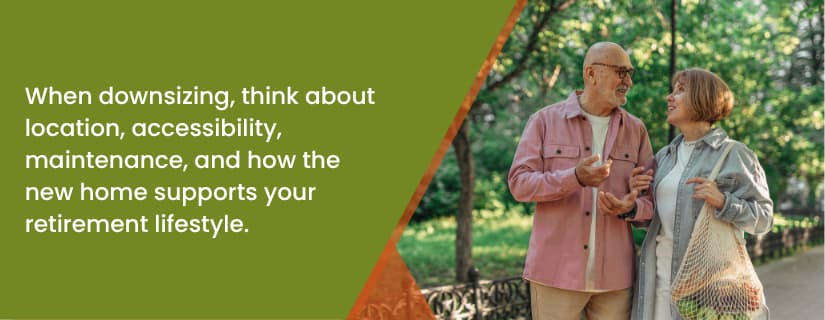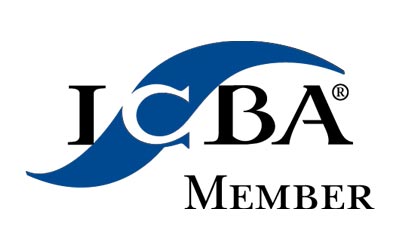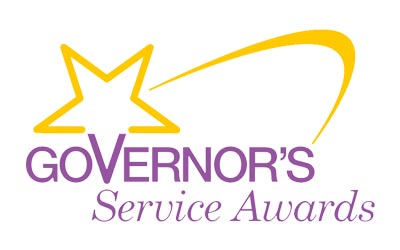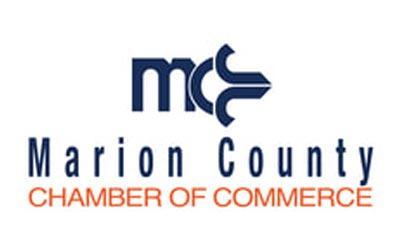Retirement is a milestone many people spend years preparing for. It brings the freedom to leave the daily grind behind and focus on what matters most. For many West Virginians, one of the biggest questions during this transition is: ‘Should I downsize in retirement?’ It’s a decision with both financial and emotional implications, making it worth careful thought.
Whether you are an empty nester, eager to simplify daily responsibilities, or looking to stretch your retirement savings further, downsizing can offer meaningful advantages. In West Virginia, where affordability, small-town charm, and strong community ties are part of everyday life, the benefits may be even greater.
In this article, we will explore the pros and cons of downsizing in retirement, share tips for making the move smoother, and highlight how First Exchange Bank can support your journey with retirement savings accounts and personalized financial services.

The Financial Benefits of Downsizing in Retirement
Lower Monthly Expenses
One of the biggest financial benefits of downsizing retirement is reducing your fixed monthly costs. A smaller home often means:
- Lower mortgage or no mortgage at all
- Decreased utility bills
- Reduced property taxes and insurance
- Less spending on maintenance and repairs
The average home value in West Virginia is around $155,000, which is already below the national average. By moving from a larger house to a more modest home, many retirees find they can lower their expenses even further, freeing up funds for healthcare, travel, or hobbies.
Boost Retirement Savings
Selling a larger home can also generate liquid assets. If you’ve built equity over the years, downsizing gives you the opportunity to invest those proceeds wisely. That might mean:
- Contributing to a retirement savings account
- Bolstering your emergency fund
- Paying off outstanding debt
At First Exchange Bank, we offer flexible savings options and personalized retirement planning West Virginia residents have come to rely on. Learn more about retirement budgeting to make sure your nest egg lasts as long as you need it to.
Non-Financial Advantages: Less Space, More Freedom
Less Maintenance Means Less Stress
A smaller property typically means fewer chores and less upkeep, which becomes increasingly important with age. No more climbing ladders to clean gutters, fewer rooms to tidy, and a smaller yard to mow or maintain all add up to less daily stress. This reduction in physical and mental strain can significantly improve your overall quality of life, freeing up more time and energy for hobbies, travel, or simply enjoying a slower pace of living.
Improved Lifestyle and Community Involvement
Beyond mobility, many retirees discover that downsizing opens doors to stronger community connections and healthier living. Smaller homes often sit in walkable neighborhoods or retirement communities where neighbors look out for one another. West Virginia offers countless opportunities to get involved, from local arts groups and church communities to volunteer programs that keep you active and socially engaged. A simpler living arrangement can also reduce daily stress, giving you more energy to focus on wellness activities such as walking trails, gardening, or fitness classes at community centers. Downsizing isn’t just about space, it’s about building a lifestyle that supports happiness and longevity.
Need ideas for where to settle in your golden years? Check out our Guide to North Central West Virginia Communities to find towns that offer peace, beauty, and affordable living.

Trade-Offs to Consider Before Downsizing
While there are many advantages, downsizing isn’t for everyone. Here are a few things to think about:
Emotional Attachment to the Family Home
Letting go of a home filled with memories can be difficult. It’s not just a property, it’s a place where children were raised, holidays were celebrated, and milestones were achieved, each room carrying its own story. Take your time during this emotional transition, and don’t hesitate to consult with a financial advisor, counselor, or trusted loved one who understands the emotional aspects of retirement and can help you balance sentiment with practicality.
Space Constraints
Downsizing might mean less storage or fewer guest rooms. If you love hosting family gatherings or need room for hobbies, make sure your new space still supports your lifestyle, accommodates your most important possessions, and provides flexibility for changing needs as you age.
Moving Costs
Although the long-term financial benefits can be significant, the short-term costs of moving, such as hiring movers, making updates to sell your home, or buying new furniture, can add up. Be sure to budget accordingly and consider building an emergency fund for unexpected expenses.
Retirement Downsizing Guide: West Virginia Tips
If you’re leaning toward downsizing in retirement, here are some tips tailored to life in West Virginia:
- Start With a Home Inventory: Identify what furniture, appliances, and keepsakes you truly need and what you can donate or sell.
- Explore One-Level Living: As mobility becomes a concern, ranch-style homes or apartments without stairs are practical options for mobility-friendly living.
- Research Local Housing Markets: Whether you’re relocating within Morgantown, Fairmont, or Bridgeport, understanding local housing trends will help you make a smart financial move.
- Factor in Proximity to Healthcare: As healthcare needs increase with age, consider access to hospitals and medical services when choosing your new home.
- Lean on Community Resources: From senior centers to volunteer groups, West Virginia has many resources that help older adults stay engaged and supported.
Mountain State Stats: Retirement Trends in West Virginia
According to national surveys, the average retirement age in West Virginia is about 61, which is slightly lower than the national average of around 64–65. This reflects the fact that many West Virginians step away from the workforce earlier than their peers in other states.
Demographic data also shows that West Virginia has one of the nation’s oldest populations. Roughly 22% of residents are age 65 or older, compared to about 17% nationwide.
West Virginia consistently ranks among the most affordable states in the country, with a cost of living well below the national average. This affordability makes it particularly appealing for retirees who want to stretch fixed incomes.
These statistics reinforce the appeal of downsizing in West Virginia: lower living costs, reduced maintenance, and a strong sense of community.
How First Exchange Bank Can Help
At First Exchange Bank, we know that retirement isn’t just about slowing down, it’s about living on your own terms. And whether you’re considering moving across town or downsizing into a retirement community, our team can help you manage the financial transition with confidence.
We offer:
- Retirement Savings Accounts with competitive rates
- Help with budgeting during and after your move
- Expert advice on building an emergency fund for added peace of mind
Learn more about our retirement budgeting resources and explore how we can support your next chapter.
Is Downsizing Right for You?
The decision to downsize in retirement is a personal one, shaped by your lifestyle, finances, and long-term goals. For West Virginia retirees, the state’s affordability and strong communities make downsizing especially appealing. Before making the move, take time to:
- Weigh the pros and cons of downsizing in retirement
- Assess your financial goals
- Consider your emotional readiness
- Speak with trusted advisors, including your bank

Take the First Step to Better Retirement with First Exchange Bank
Deciding whether downsizing in retirement is right for you depends on your goals, lifestyle, and financial needs. Before making the move, talk with trusted advisors and explore how First Exchange Bank can support your plans. Contact us or stop by your local branch to start planning your brighter retirement today.









